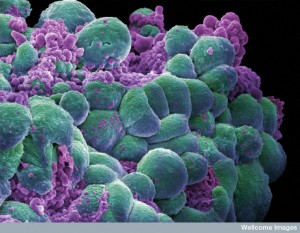 The effort of developing a blood test that would reveal a risk factor for a woman for developing breast cancer might be another step close to reality, but still has a long way to go, according to information released from a new study.
The effort of developing a blood test that would reveal a risk factor for a woman for developing breast cancer might be another step close to reality, but still has a long way to go, according to information released from a new study.
Researchers found blood hormone tests might predict the level of risk for developing breast cancer that is postmenopausal for up to 20 years following the blood sample being taken.
However, there are limitations in the study and it needs to be expanded and replicated, said the lead author Dr. Xuehong Zhang, an epidemiologist in Boston.
He said that the thought is the addition of the hormone levels to the current risk prediction models would improve the ability to find out the high-risk women who might benefit from more screening and prevention.
Although it has already been established that androgen and estrogen levels in the blood can be linked with the risk of developing postmenopausal breast cancer, it has not been known by researchers how many years into the future the risk prediction could go.
A large women’s study took blood samples from participants in 1989 as well as in 1990 and then once again in 2000 an in 2002. Only women who were postmenopausal and not using hormones were participants in the study. Researchers found a total of 796 breast cancer cases diagnosed through 2010.
